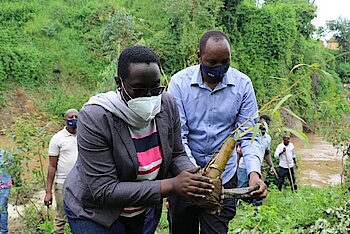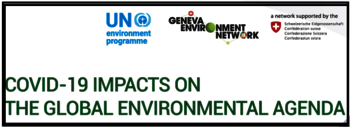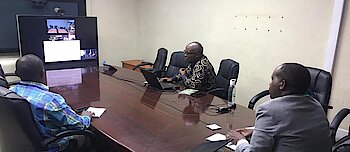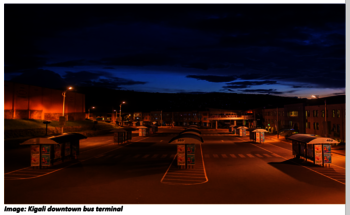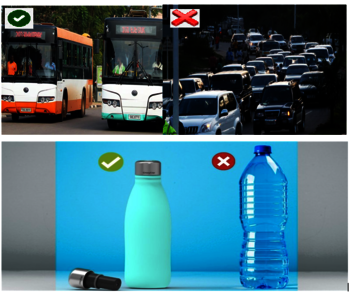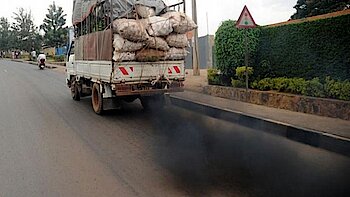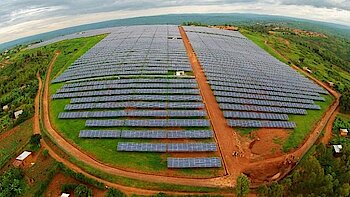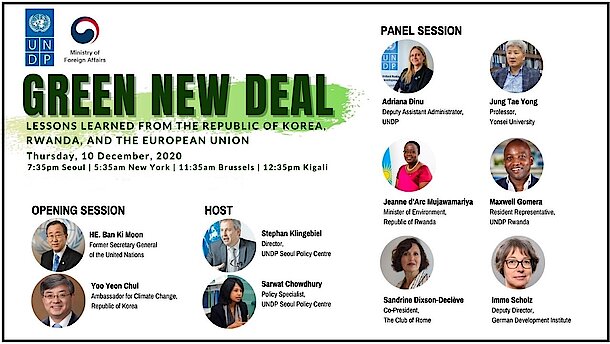
Green New Deal: Lesson Learned from the Republic of Korea, Rwanda and the European Union
This webinar was co-organized by the Korea Ministry of Foreign Affairs and the UNDP Seoul Policy Centre (USPC). It is the second event on the theme of the Green New Deal. At this time the webinar was focusing on the lesson learned from the Republic of Korea, Rwanda and the European Union.
Indeed, the commitment of green initiatives is a complex path, but how countries came up to such decision, as we understand there is a competing interest! “It is the reason why this webinar was prepared to share the experience of how political constraints can be overcome” said Stephan Klingebiel, Director of UNDP, Seoul Policy Centre
The webinar kicked off by the former General Secretary of the UN, HE Ban Ki Moon. In his opening remarks he explained how this meeting is meaningful to provide experience but also to enhance solidarity in green transition, and this green transition will be achieved by setting the clear vision to ensure that the green new deal serve as an economic stimulus by building a carbon neutral society; and the new deal should serve as an inclusion where no one will left behind, and should be interlinked with sustainable development goals” he said
Republic of Korea shared the experience and how they came up with the aim of Carbon Neutral in 2050, and how the Government is taking initial stage by implementing Green New Deal. Ambassador for Climate Change, Republic of Korea; Yoo Yeon Chui said that “ Korea ratified Paris Agreements and it is continue to seek higher ambition”
Rwanda Minister of Environment; Dr Mujawamariya Jeanne d'Arc; explained the lesson learned by Rwanda Government through this hard period of Covid-19. Rwanda put in place the Recovery Economic Plan which detail the priority of the country, including: the short-medium measures to support vulnerable households; and creation of green jobs.
In May, Rwanda submitted to the UNFCCC the Updated Nations Determined Contributions which highlight what Rwanda will achieve through Nature Based Solutions, clean energy, waste management, clean transport, etc. Rwanda also aim to reduce the biomass use in cooking, started in urban areas, where the goal is to reduce the use of biomass in cooking from 79% to 42% in 2024. In transport Rwanda introduced the use of electric cars through private operators like Volkswagen Rwanda, while in afforestation Rwanda aim to plant 25 Millions trees this year by working with different partners.
Other good experience in Rwanda is the air pollution reduced especially in Kigali City during the lock down due to Covid-19; which is a good lesson of what causes the air pollution and how to avoid.
For the European Commission, they launched the Green new deal, where EU aim to reach net-zero Greenhouse gases emissions by 2050, That means updating the EU’s climate ambition for 2030, with a 50-55% cut in greenhouse gas emissions to replace the current 40% objective.
Topics
More posts
Rwanda’s NAP Project funded by GEF was launched
The Global Environment Facility (GEF)-funded $6 million project “Building the capacity of Rwanda’s government to advance the National Adaptation…
Rwanda Pledges emissions cut of 38% in its climate action plan by 2030
Rwanda as a signatory to the Paris Agreement under which countries are due to update or communicate their 2030 emission-reduction plans, it submitted…
The Geneva Environment Dialogues discussed the impacts of the COVID-19 on the global climate change agenda
The dialogues took place on Tuesday 19 May, 2020 from 9: 00 to 9:50 on Facebook live, as way of communicating in this time of COVID-19.
this session…
Assessment of Rwanda’s vulnerability to climate change was presented to local authorities
Rwanda Environment Management Authority (REMA), with the logistical support of Ministry of Local Government (MINALOC), hold a video conference with…
Coronavirus responses proves the World can act on Climate Change
The COVID-19 pandemic has provoked a global response unlike anything we have seen before. Governments have witnessed transformational changes that…
COP 26 postponed due to the disruption caused by COVID-19
This crucial climate summit is the 26th session of conference of Parties (COP26) to the UNFCCC and it was scheduled from 9-19 November 2020 in…
Be self-accountable to tackle Climate Change and save environment
Climate change has already begun to impact our planet in more ways than we can think. Temperatures continue to rise throughout the planet and we are…
Switching to electric vehicles is a mean to reduce greenhouse gases emissions and improve air quality in the City of Kigali
Over the last 150 years, human activities have greatly contributed to the increase of greenhouse gases in the atmosphere, which make the planet…
Green Growth as an Opportunity for Business
Twenty-eight years after the Rio Summit, the countries embrace the vision for development by expanding the economy and addressing the environment…
